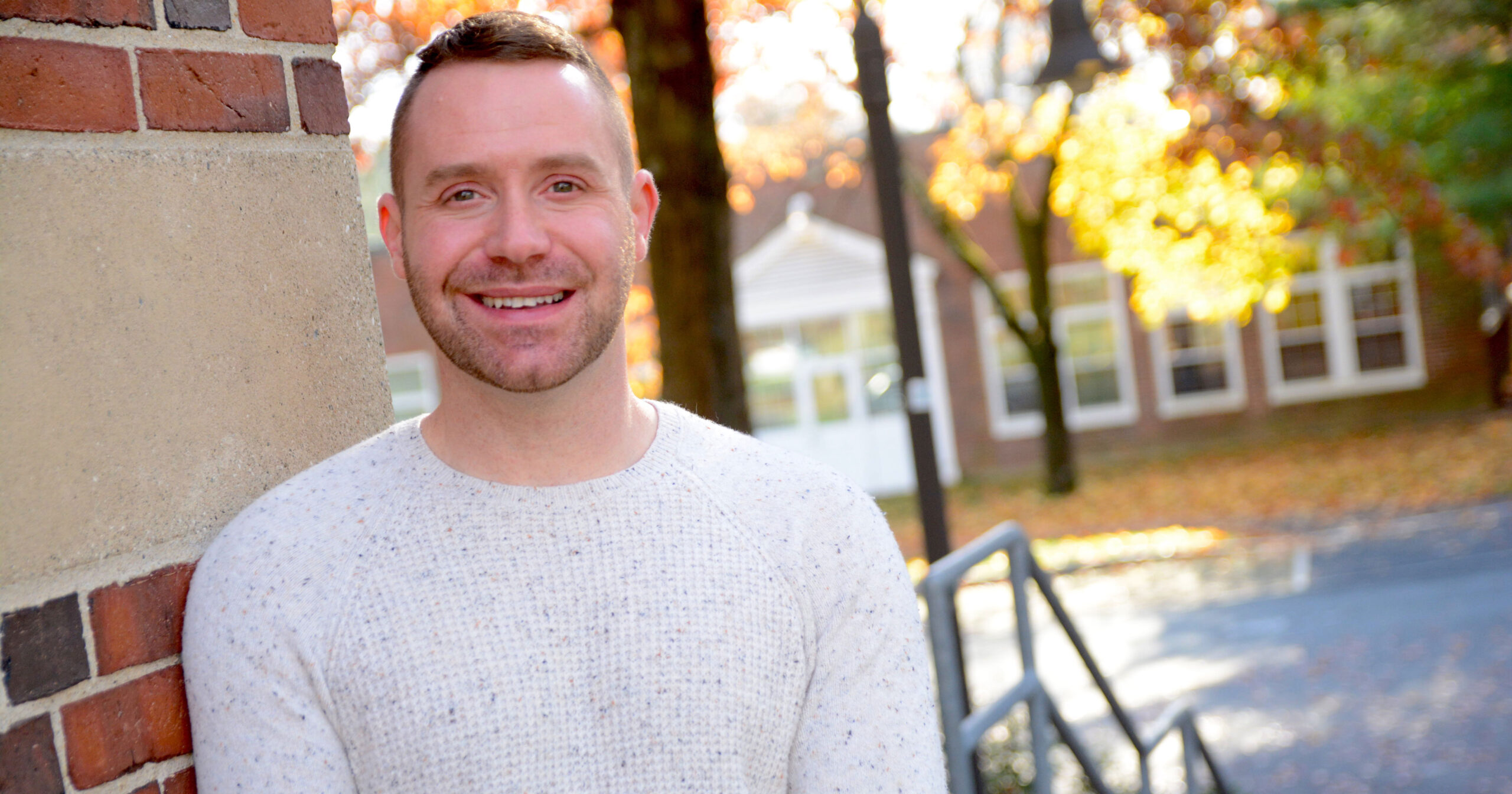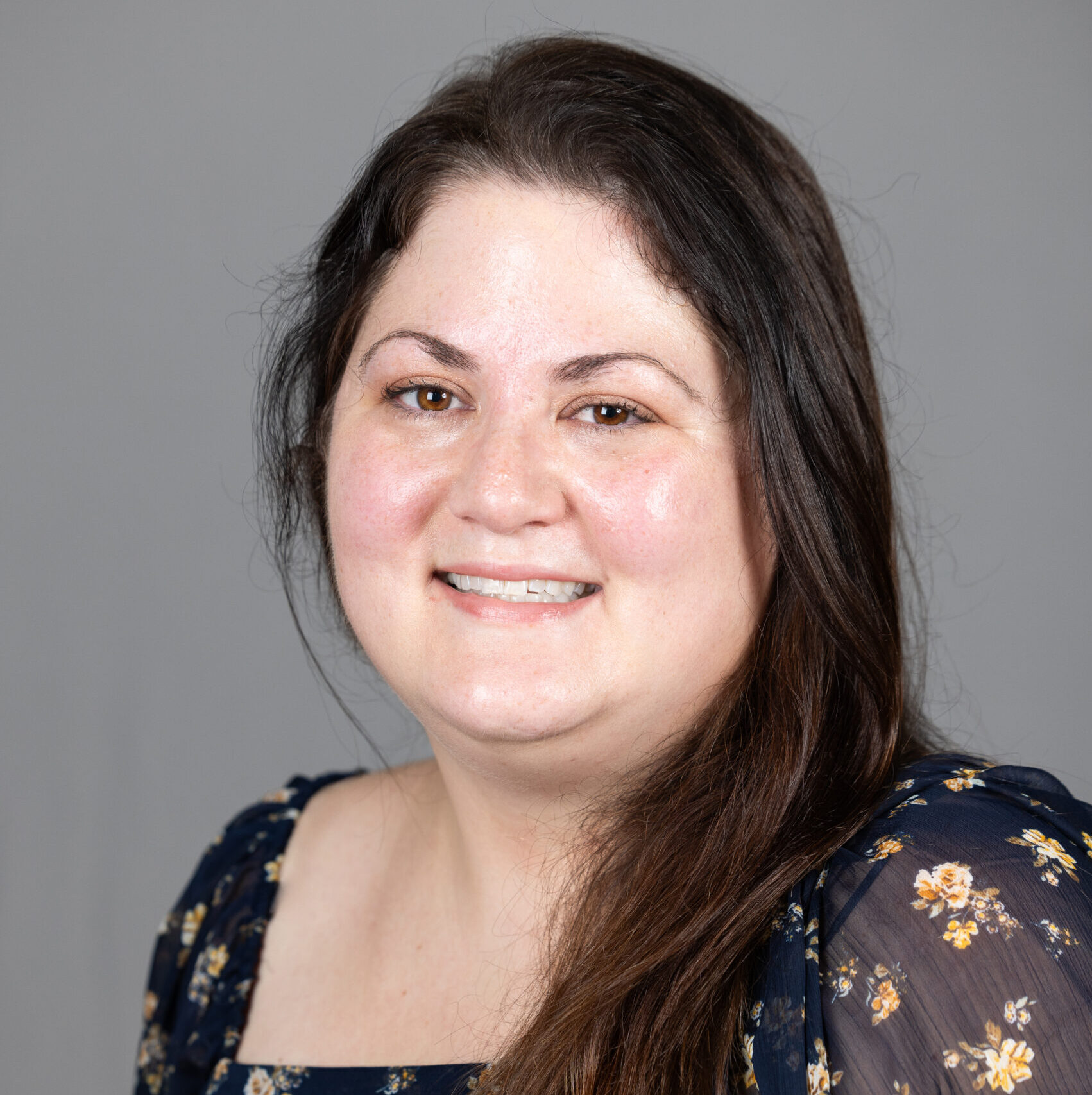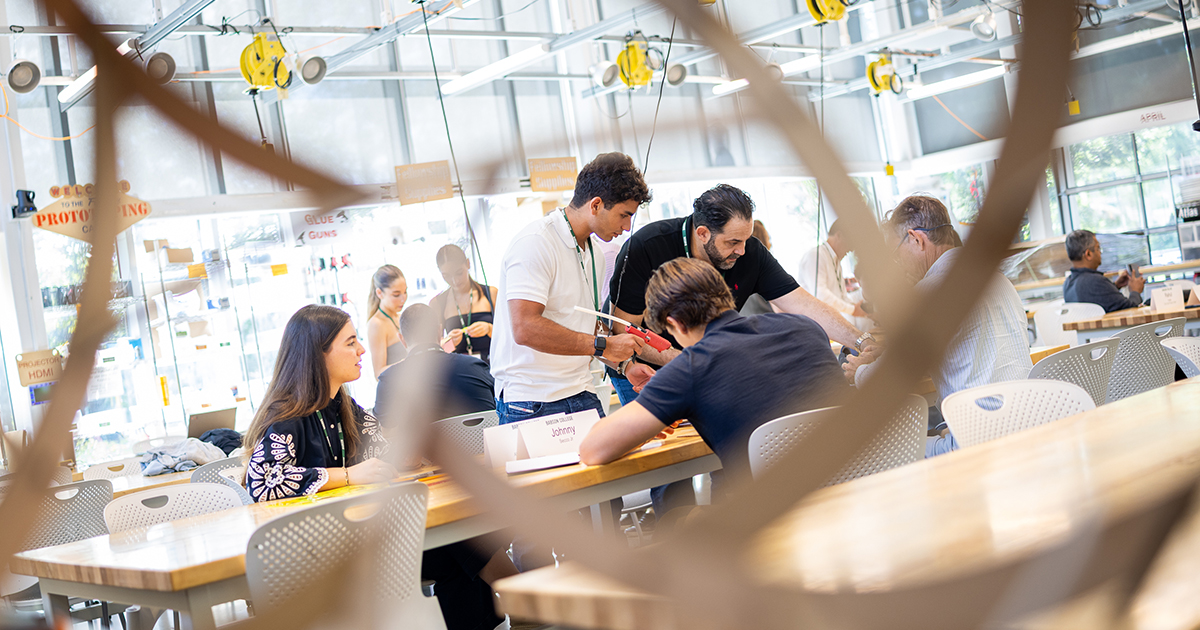For First-Generation Students, New Initiatives and Office Bring Resources to the Forefront

If you walk by Park Manor North recently, you may notice a new face. That’s because Michael Prinkey, Babson’s first manager of First-Generation Student Success, and the newly launched First-Generation Student Success office are quickly becoming pillars on campus.
Prinkey, who started his role at Babson in September, is part of the Babson team spearheading campus’ new First-Generation Student Success initiatives, the biggest of which is the new office. A first-generation college student himself, Prinkey’s resume includes over a decade working in mentorship in nonprofits and higher education.
Roughly 20 percent of the undergraduate Class of 2028 identifies as first-generation. As he draws on his personal and professional experience to help steer this new office, his goal is to keep the needs of the Babson first-generation population at the forefront.
“A big hurdle I felt myself as a first-generation, low-income student was a sense of shame when a lot of my peers were not asking for these resources,” he says. “I want to make sure we build a system where students don’t feel shame about looking for support. I want someone to look back and say I maybe didn’t have the same privilege as my peers, but I had people to help me succeed.”
As the office takes formation, Prinkey is excited to see how it will evolve, especially with a team of students helping bring the office’s vision to life. His team will support the student-run Semillas Society, and aims to provide mentorship, professional development, community building, and emotional support resources for students. He also will speak at the Anaya Scholar Bridging Gaps Gala, which is being held on November 23 at Knight Auditorium.
Ahead of the First-Generation Student Success office’s grand opening on November 8, we talked to Prinkey about his new role, his experiences, and why this work matters to Babson.
What is the mission of the new office? What do you hope to accomplish in the next year?
“We will lean on our student interns and the first-generation steering committee to develop what the mission, vision, and values will look like. Our goal is to be a centralized resource for first-generation students and create a campus-wide strategy.
“We know a lot of offices and student groups are doing first-generation work at Babson. My job is not to take that away from them or to manage those efforts but to create a centralized communication system, so students always have access to resources and know where to find them and to fill in some of those missing pieces. I also want to provide a private setting where students can have the space to have necessary, safe conversations.
“I want people to know I’m here to do good work and to move fast, but I also want them to know I’m a partner. If they’re doing great things, and they want to keep holding it, I’m here to support.”
What are the first initiatives and programs the First-Generation Student Success office is rolling out?
“The first week of November, we are doing general programming, including a first-generation wellness fair, leading up to our grand opening on November 8. It’s part of First-Generation College Celebration Day, which is typically celebrated on November 8 in alignment with the signing of the Higher Education Act of 1965. We’ll have activities for people to talk about what it’s like to be first-generation and hopefully students, faculty, and staff will identify that they are first generation in a public way.
“On November 2, we’re taking some students to Southern New Hampshire University’s annual First Gen Summit.
“We’re aiming for two to three big programming events this semester, and then making sure we’re going into January with the entire spring semester planned out with resources, webinars, professional development, and programming.”
How can students get involved with the office?
“We’re fortunate to have a lot of interest. We posted a student intern position with the hope of hiring about five to six. We ended up hiring eight. It’s pretty exciting. I’d love to make sure that enthusiasm is built upon. If you’re interested in our work, just show up! I’m here almost every day in the office.
“Come to our events. Students can email me directly and just talk about ideas or help me develop a program. I’d love to get them involved if they are interested in anything relevant to first-generation students.”
What inspires you as you lead this new initiative?
“When I was in college, I felt like I struggled every day, not necessarily academically but with the social and emotional elements to it. I didn’t know how to apply for financial aid. I didn’t know what it meant to run out of a meal plan and how to ask for more food.
“I was very fortunate to have a lot of faculty and staff take interest in me. Seeing how instrumental that was to my current success, I want someone to say Babson did that for them. I want students to look back on Babson and say that this place sets up students who are historically underrepresented to thrive in the same way that all their other peers are.”
What advice do you have for first-generation students?
“Get involved and start building interpersonal connections. The more you build relationships with your peers, faculty, and staff, the more you’ll hear about opportunities, events, and resources.
“Find someone or a place to just feel connected and start branching out from there. We have a team of student interns who all identify as first-generation students and who all have a range of personality types. You can find someone here just to make a friend and get your questions answered.”
Posted in Community




